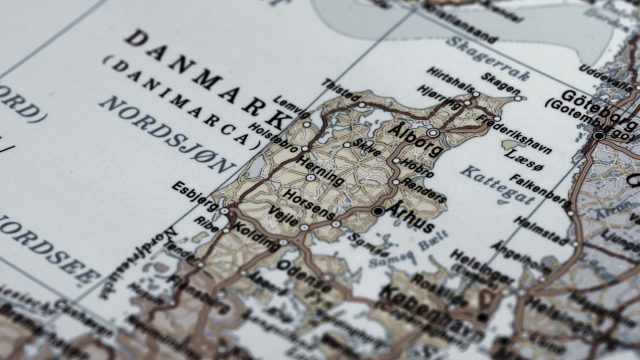
Allocation scheme
WEEE AND BATTERIES. At DPA, we calculate the allocation among producers of quantities of end-of-life electronics and batteries to be collected at the recycling centres. The geographical assignment is based on producers’ market shares and their mandatory take-back obligation.

Local authorities
Annual “shift"
The allocation period runs annually in the period from 1 September to 31 August. Every year DPA calculates the quantity of electronic waste and portable batteries that collective schemes or individual compliers are to collect from private households. Allocated quantities are picked up from the municipal collection sites/recycling centres. The calculation and the practical execution is called “the allocation scheme” or the “annual shift”; this is because some local authorities will see that new collective schemes and operators will call on their sites to replace the collection equipment delivered to the site.
Search for collection sites in DenmarkCooperation between local authorities and producers
The allocation scheme involves many players and calls for a practical cooperation between collective schemes and their operators, the local authority, and operational staff at the sites.
In addition to the calculation of the producers’ market shares and the share of the take-back obligation DPA must collect and publish the following information to be used by affected players:
Link up to collective scheme
If you have chosen to comply with your producer responsibility individually and you have placed products for use in households or portable batteries on the market in a certain quantity you may be allocated with take-back of waste electronics and portable batteries from municipal collection sites, just like businesses affiliated to a collective scheme.
This means that for a period of twelve months and within a specific geographical area your business must comply with its take-back obligation by picking up a proportionate share of waste electronics per category or portable batteries corresponding to the products you have placed on the market. This take-back obligation is called the ‘allocation’.
DPA notifies on allocation
As soon as DPA can see in the calculation of the allocation that individual compliers can be allocated with a take-back obligation in a municipality the business in question is notified.
Assuming collection and ensuring environmental treatment of end-of-life electronics or portable batteries is a very challenging task in terms of administration, logistics, and communication. Therefore, most businesses choose to join a collective scheme.
A collective scheme is an offer for each individual producer to carry out, among others, the take-back obligation. This is done against payment. The recovery of waste electronics often generates revenues, so it is recommended that the producer negotiates with the collective scheme when entering a membership agreement.
The final allocation is published by DPA on 1 June, so allocated businesses must have settled the organisation of their take-back obligation before that date.
How to do it:
When you have chosen a collective scheme, the affiliation is created in the producer register as follows:
- Log into DPA
- Choose menu item: “Category selection and reporting” and ”Collective schemes”
- Off every category you choose the collective scheme in the drop-down list. Click Save.
Now the collective scheme will receive a request that it can accept. If the collective scheme accepts the request, the official link to this collective scheme has been established.
Shortcuts
Collection sites
See requirements for municipal collection sites, including description of electronics fractions
Regional sites 2023-2024
See regional collection sites for large quantities of waste electronics from households and similar
Collection equipment and pictograms
See producers’ collection equipment and the standard pictograms used by local authorities
Compliance schemes and handeling companies
See contact information of waste carriers and operators calling on municipal collection sites further to the annual allocation
Allocation
See who picks up end-of-life electronics and portable batteries at the municipal collection sites
Statistics for collected electronics
See volumes of waste electronics collected in the municipalities
Statistics for collected batteries
See how many batteries are collected in the municipalities
Cooperation between local authorities and producers
See guidelines for the cooperation between local authorities and producers, including requirements for sorting and pickup at collection sites